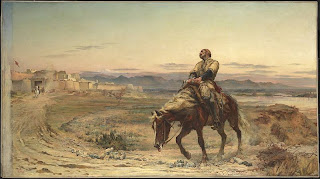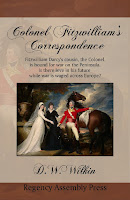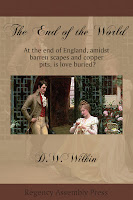Those of us old enough [DWW -- I am at an age where I can use this cliche] or with a sense of humor that has delved into the spirited biography of Sir Harry Paget Flashman will know that this war is the first in which that intrepid (not) hero has his adventures.
 This example, Flashman, by George MacDonald Fraser [Fraser was the screenwriter for the classic Three and Four Musketeer movies staring Oliver Reed and Michael York, directed by Richard Lester] is as keen a work of historical fiction as there ever was. Fraser takes us through much of the Victorian era, using an antagonist from Tom Brown's Schooldays.
This example, Flashman, by George MacDonald Fraser [Fraser was the screenwriter for the classic Three and Four Musketeer movies staring Oliver Reed and Michael York, directed by Richard Lester] is as keen a work of historical fiction as there ever was. Fraser takes us through much of the Victorian era, using an antagonist from Tom Brown's Schooldays. In the first book of his series, Fraser takes us to India and Afghanistan with Flashman embroiled in the misadventures that land him at Kabul at the very beginning of this crisis. It was here that I came to learn how difficult a war in Afghanistan can be -- a point that the Joint Chiefs might have realised had they read Flashman, or studied British Military History. Certainly in modern times, with their own support, they showed the Russians how difficult fighting in that country is.
The War
The action that took place between 1839 and 1842 resulted in the deaths of 4500 British troops, and 12,000 camp followers. All but one man, as the British forces retreated to India, survived to reach Jalalabad. The rest were killed, or a very few were taken captive and later released. Many others may have ended up slaves to the Afghan Tribes. In retribution for the destruction of the column that had surrendered and were marching away from Afghanistan, the British would return and level Kabul.
The cause of this war was the fear by Lord Palmerston that the Russians might invade India by way of the passes through Afghanistan. The British sent an envoy to meet with Afghanistan's Emir Dost Mohammad Khan. The Emir wanted support to help retake Peshawar from the Sikh Empire. Lord Auckland, the Governor General heard that the Emir was also meeting with a Russian Envoy, though the advisors to Auckland made more of this than was so. When talks broke down between the Russians and the Emirs, the British thought that the Russians would certainly invade, and the Persians, backed by the Russians attempted to do so, but stopped when Britain threatened war.
Not happy with all the various negotiations, Lord Auckland sought to put Shuja Shah Durrani in 1838 as ruler of Afghanistan so they would have a firm ally. The British claimed it was not an invasion, yet it was certainly interfering with a country beyond the scope of the borders they did control firmly--an arrogant attitude that would re-emerge in Southern Africa later on, though there the costs were not to be as great in lives.
Eventually, the British sent an army of 21,000 troops commanded by William Elphinstone, a man well past his prime as a competent officer. They arrived at Kandahar in April of 1839. In July they attacked and captured the fortress of Ghazni. The British lost 200 men whilst the Afghans lost 500. 1600 Afghans were taken prisoner. The British then achieved a victory against Dost Mohammad who fled. In August, after an absence of almost 30 years, Shuja Shah Durrani was once again enthroned in Kabul.
 |
| A British-Indian force attacks the Ghazni fort during the First Afghan War, 1839 |
Now the majority of British troops returned to India. This though showed that a larger British presence was needed in Kabul to keep Shah Shuja in power. The government of Britain's representative, William Hay Macnaghten, allowed the soldiers to bring their families to Afghanistan to improve their morale. This further incited the Afghans though, since it looked like the British were coming permanently, when such was not the case.
Dost Mohammad attacked in 1840 and failed, surrendering and was then exiled into India. The British took up residence in northeast Kabul in an indefensible location. Bad planning also saw that their stores and supplies were in a separate fort, some three hundred yards away. In 1841 disaffected Afghan Tribesmen flocked to Dost Mohammad's son, Akbar Khan, and in November Sir Alexander Sekundar Burnes and his aides were killed by a mob in Kabul. On November 9th the Afghans took the supply fort.
The British tried to negotiate with Akbar Khan. Macnaghten offered to make Akbar the vizier, while also trying to pay for Akbar's assassination. Akbar heard of this and then consented to a meeting on December 23rd. Macnaghten and three officers went to this meeting. Akbar seized and killed them all.
On January 1 1842, an agreement was reached to allow the British to retreat. 16,500 people left Kabul, but only one, Doctor William Brydon arrived in Jalalabad.
 |
| 'Remnants of an Army' by Elizabeth Butler portraying William Brydon arriving at the gates of Jalalabad as the only survivor of a 16,500 strong evacuation from Kabul in January 1842. |
The British response was thorough. Akbar Khan's forces were attacked. They were defeated. Akbar was poisoned, probably by his father Dost Mohammad. The British were planning to take back Kabul, but there was a change in government back in England, and instead they chose to abandon Afghanistan.
The British were thirty five years ahead of events in their fears of the Russians using Afghanistan as a path into India. It took the Russians that long to extend their empire so that they were ready to advance. This precipitated the Second Anglo-Afghan war.
~~~~~~~~~~~~
 Mr. Wilkin writes Regency Historicals and Romances, Ruritanian (A great sub-genre that is fun to explore) and Edwardian Romances, Science Fiction and Fantasy works. He is the author of the very successful Pride & Prejudice continuation; Colonel Fitzwilliam’s Correspondence. He has several other novels set in Regency England including The End of the World and The Shattered Mirror.
Mr. Wilkin writes Regency Historicals and Romances, Ruritanian (A great sub-genre that is fun to explore) and Edwardian Romances, Science Fiction and Fantasy works. He is the author of the very successful Pride & Prejudice continuation; Colonel Fitzwilliam’s Correspondence. He has several other novels set in Regency England including The End of the World and The Shattered Mirror. His most recent work is the humorous spoof; Jane Austen and Ghosts, a story of what would happen were we to make any of these Monsters and Austen stories into a movie.

 And Two Peas in a Pod, a madcap tale of identical twin brothers in Regency London who find they must impersonate each other to pursue their loves.
And Two Peas in a Pod, a madcap tale of identical twin brothers in Regency London who find they must impersonate each other to pursue their loves.He is published by Regency Assembly Press
The links for all locations selling Mr. Wilkin's work can be found at the webpage and will point you to your favorite internet bookstore: David’s Books, and at various Internet and realworld bookstores including the iBookstore, Amazon, Barnes and Noble, Smashwords.
And he maintains his own blog called The Things That Catch My Eye where the entire Regency Lexicon has been hosted these last months as well as the current work in progress of the full Regency Timeline is being presented.
You also may follow Mr. Wilkin on Twitter at @DWWilkin
Mr. Wilkin maintains a Pinterest page with pictures and links to all the Regency Research he uncovers at Pinterest Regency-Era




Interesting post. Ever since I read The Far Pavilions by M.M.Kaye, I've been fascinated by the Afghan wars (although perhaps more the second than the first). Thanks for providing some further context.
ReplyDelete